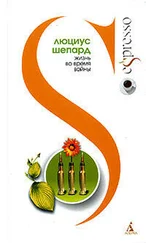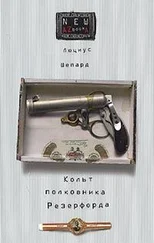“…White Sox six, A’s three,” said the announcer. “That’s eight in a row for the Sox…”
“White Sox are kickin’ some ass,” said the corporal, pleased.
“The White Sox!” Gilbey sneered. “What the White Sox got ’cept a buncha beaners hittin’ two hunnerd and some coke-sniffin’ niggers? Shit! Every spring the White Sox are flyin’, man. But then ‘long comes summer and the good drugs hit the street and they fuckin’ die!”
“Yeah,” said the corporal, “but this year…”
“Take that son of a bitch Caldwell,” said Gilbey, ignoring him. “I seen him coupla years back when he had a trial with the Tigers. Man, that guy could hit! Now he shuffles up there like he’s just feelin’ the breeze.”
“They ain’t takin’ drugs, man,” said the corporal testily. “They can’t take ’em ’cause there’s these tests that show if they’s on somethin’.”
Gilbey barreled ahead. “White Sox ain’t gotta chance, man! Know what the guy on TV calls ’em sometimes? The Pale Hose! The fuckin’ Pale Hose! How you gonna win with a name like that? The Tigers, now, they got the right kinda name. The Yankees, the Braves, the…”
“Bullshit, man!” The corporal was becoming upset; he set down his clipboard and walked to the end of the bar. “What ’bout the Dodgers? They gotta wimpy name and they’re a good team. Your name don’t mean shit!”
“The Reds,” suggested Mingolla; he was enjoying Gilbey’s rap, its stubbornness and irrationality. Yet at the same time he was concerned by its undertone of desperation: appearances to the contrary, Gilbey was not himself this morning.
“Oh, yeah!” Gilbey smacked the table with the flat of his hand. “The Reds! Lookit the Reds, man! Lookit how good they been doin’ since the Cubans come into the war. You think that don’t mean nothin’? You think their name ain’t helpin’ ’em? Even if they get in the Series, the Pale Hose don’t gotta prayer against the Reds.” He laughed—a hoarse grunt. “I’m a Tiger fan, man, but I gotta feelin’ this ain’t their year, y’know. The Reds are tearin’ up the NL East, and the Yankees is comin’ on, and when they get together in October, man, then we gonna find out alia ’bout everything. Alia ’bout fuckin’ everything!” His voice grew tight and tremulous. “So don’t gimme no trouble ’bout the candyass Pale Hose, man! They ain’t shit and they never was and they ain’t gonna be shit ’til they change their fuckin’ name!”
Sensing danger, the corporal backed away from confrontation, and Gilbey lapsed into a moody silence. For a while there were only the sounds of chopper blades and the radio blatting out cocktail jazz. Two mechanics wandered in for an early morning beer, and not long after that three fatherly-looking sergeants with potbellies and thinning hair and quartermaster insignia on their shoulders sat at a nearby table and started up a game of rummy. The corporal brought them a pot of coffee and a bottle of whiskey, which they mixed and drank as they played. Their game had an air of custom, of something done at this time every day, and watching them, taking note of their fat, pampered ease, their old-buddy familiarity, Mingolla felt proud of his palsied hand. It was an honorable affliction, a sigh that he had participated in the heart of the war as these men had not. Yet he bore them no resentment. None whatsoever. Rather it gave him a sense of security to know that three such fatherly men were here to provide him with food and liquor and new boots. He basked in the dull, happy clutter of their talk, in the haze of cigar smoke that seemed the exhaust of their contentment. He believed that he could go to them, tell them his problems and receive folksy advice. They were here to assure him of the tightness of his purpose, to remind him of simple American values, to lend an illusion of fraternal involvement to the war, to make clear that it was merely an exercise in good fellowship and tough-mindedness, an initiation rite that these three men had long ago passed through, and after the war they would all get rings and medals and pal around together and talk about bloodshed and terror with head-shaking wonderment and nostalgia, as if bloodshed and terror were old, lost friends whose natures they had not fully appreciated at the time… Mingolla realized then that a smile had stretched his facial muscles taut, and that his train of thought had been leading him into spooky mental territory. The tremors in his hand were worse than ever. He checked his watch. It was almost ten o’clock. Ten o’clock! In a panic, he scraped back his chair and stood.
“Let’s look for him,” he said to Gilbey.
Gilbey started to say something but kept it to himself. He tapped his spoon hard against the edge of the table. Then he, too, scraped back his chair and stood.
Baylor was not to be found at the Club Demonio or any of the bars on the west bank. Gilbey and Mingolla described him to everyone they met, but no one remembered him. The longer the search went on, the more insecure Mingolla became. Baylor was necessary, an essential underpinning of the platform of habits and routines that supported him, that let him live beyond the range of war’s weapons and the laws of chance, and should that underpinning be destroyed… In his mind’s eye he saw the platform tipping, him and Gilbey toppling over the edge, cartwheeling down into an abyss filled with black flames. Once Gilbey said, “Panama! The son of a bitch run off to Panama.” But Mingolla didn’t think this was the case. He was certain that Baylor was close at hand. His certainty had such a valence of clarity that he became even more insecure, knowing that this sort of clarity often heralded a bad conclusion.
The sun climbed higher, its heat an enormous weight pressing down, its light leaching color from the stucco walls, and Mingolla’s sweat began to smell rancid. Only a few soldiers were on the streets, mixed in with the usual run of kids and beggars, and the bars were empty except for a smattering of drunks still on a binge from the night before. Gilbey stumped along, grabbing people by the shirt and asking his questions. Mingolla, however, terribly conscious of his trembling hand, nervous to the point of stammering, was forced to work out a stock approach whereby he could get through these brief interviews. He would amble up, keeping his right side forward, and say, “I’m looking for a friend of mine. Maybe you seen him? Tall guy. Olive skin, black hair, thin. Name’s Baylor.” He came to be able to let this slide off his tongue in a casual unreeling.
Finally Gilbey had had enough. “I’m gonna hang out with Big Tits,” he said. “Meet’cha at the PX tomorrow.” He started to walk off, but turned and added, “You wanna get in touch Tore tomorrow, I’ll be at the Club Demonio.” He had an odd expression on his face. It was as if he were trying to smile reassuringly, but—due to his lack of practice with smiles—it looked forced and foolish and not in the least reassuring.
Around eleven o’clock Mingolla wound up leaning against a pink stucco wall, watching out for Baylor in the thickening crowds. Beside him, the sun-browned fronds of a banana tree were feathering in the wind, making a crispy sound whenever a gust blew them back into the wall. The roof of the bar across the street was being repaired: patches of new tin alternating with narrow strips of rust that looked like enormous strips of bacon laid there to fry. Now and then he would let his gaze drift up to the unfinished bridge, a great sweep of magical whiteness curving into the blue, rising above the town and the jungle and the war. Not even the heat haze rippling from the tin roof could warp its smoothness. It seemed to be orchestrating the stench, the mutter of the crowds, and the jukebox music into a tranquil unity, absorbing those energies and returning them purified, enriched. He thought that if he stared at it long enough, it would speak to him, pronounce a white word that would grant his wishes.
Читать дальше






